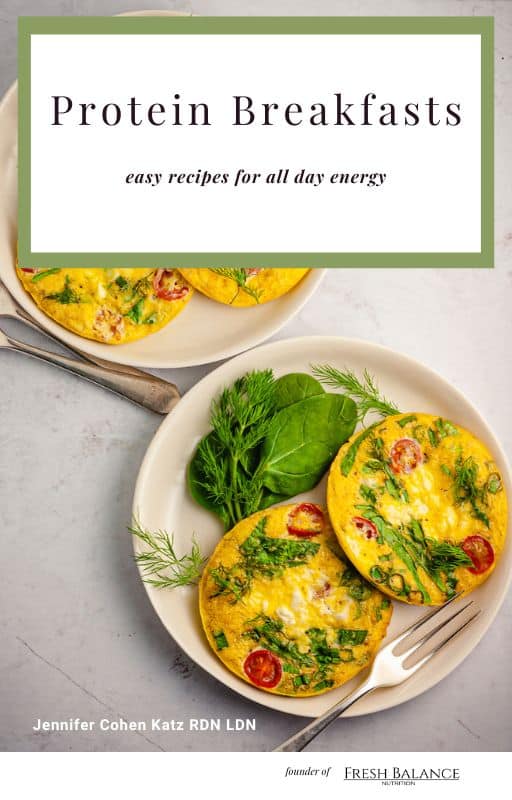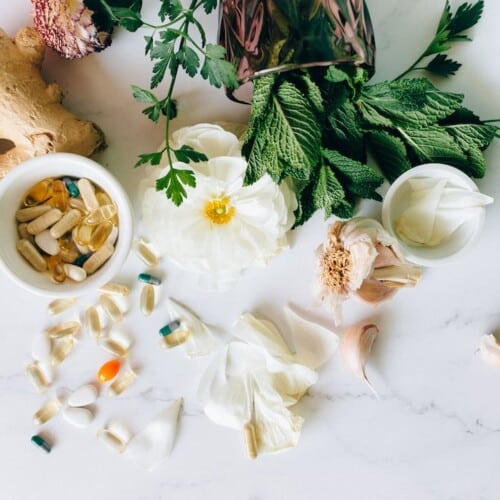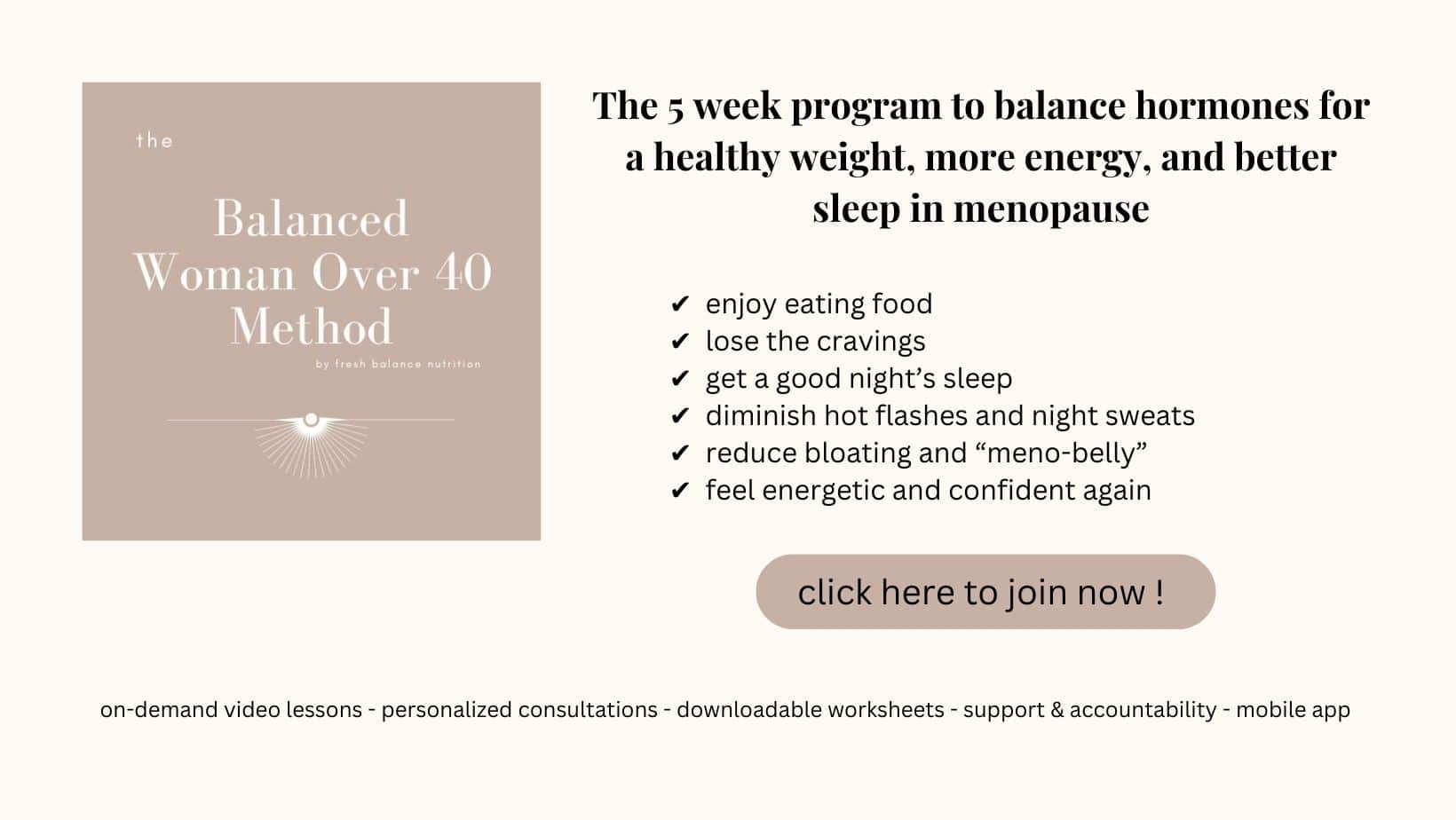We actually don’t need as many calories as we approach menopause but at the same time we’ll need more protein and more of some other important nutrients. One reason is because our muscle mass and bone strength is decreasing as we lose estrogen.
What you choose to eat can help reduce menopausal symptoms and keep your muscles, bones, and heart strong. Make sure you know which foods are nutrient-packed and serve a purpose for your healthy body and the best diet in menopause.
Here are 12 foods that can help you manage the symptoms that can come with menopause, reduce the risk of chronic conditions, and help you get to your healthy weight.
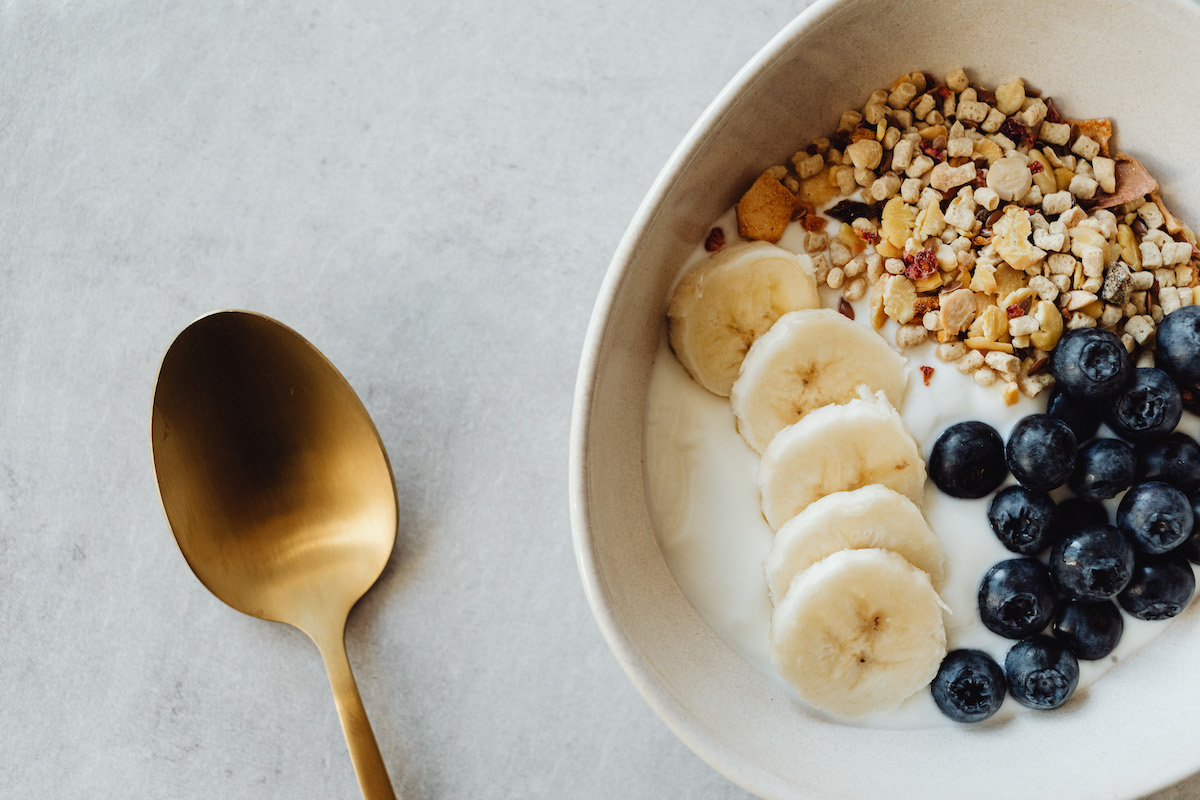
1 Great sources of calcium like Greek yogurt
The decline in estrogen levels during menopause can increase women’s risk of bone fractures. For this reason our calcium needs go up. Thick, creamy Greek yogurt contains both calcium and protein essential for bone strength.
2 Lean protein foods like Chicken
The decline in estrogen from menopause is linked to decreased muscle mass and bone strength. Eating protein foods throughout the day can help slow muscle and bone loss. Protein-rich foods will help you to feel fuller for longer. Therefore, you may eat less throughout the day after meals that feature protein. Chicken is a popular choice but you could get the same benefits from tuna, lean beef, tofu, and turkey.
3 Cruciferous vegetables like broccoli
Eating any vegetables will contribute all kinds of health benefits no matter who you are. But cruciferous vegetables specifically are linked to a compound called diindolylmethane (DIM), which positively affects your estrogen levels during menopause and may help with symptoms. DIM increases the type of estrogen responsible for reducing breast cancer risk and it lowers levels of another type of estrogen responsible for increasing cancer risk.
4 Leafy greens like spinach
Spinach and other greens like chard, collards, and kale are good sources of magnesium.
A magnesium deficiency is associated with higher levels of stress and anxiety and difficulty relaxing, which can affect menopause symptoms. Getting adequate magnesium from your diet can also help you relax and get better sleep.
5 Phytoestrogen foods like edamame
Phytoestrogens are compounds in foods that act as weak estrogens in your body. Foods which contain phytoestrogens may help menopausal women reduce hot flashes. They can also prevent some bone loss, protect against breast cancer, dementia, and heart disease.
6 Whole grains like Quinoa
Quinoa is actually a seed but we prepare and plan meals with it like a whole grain. It is gluten free and provides both protein and fiber. A food with both protein and fiber is a keeper for women because we need both for heart health and feeling satisfied with meals.
7 Nuts like almonds
Bone health is such a big concern in menopause. Almonds are a great choice for a snack or to chop up and sprinkle over an entrée. This nut is a good source of both calcium and magnesium for bone health. You’ll also get some protein and fiber from almonds that less nutritious snacks might not offer.

8 Sources of omega-3 fatty acid like Salmon
There’s a pretty long list of benefits from omega-3 fatty acids in menopause. The healthy omega-3’s in salmon can help boost your mood, manage anxiety, and decrease inflammation in your body. And a bonus – fish is a great source of protein.
9 Anti-inflammatory foods like olive oil
This plant oil is anti-inflammatory and can help lower cholesterol levels. It’s loaded with antioxidants. Pick out a good quality olive oil to support your heart health, a huge concern in menopause. Use olive oil in cooking, in salad dressing, or snack on a few olives.
10 Cancer-fighting foods like flaxseeds
Flaxseeds are one of the best sources of compounds called lignans. Lignans can help lower your risk of breast cancer. Sprinkle ground flaxseed on oatmeal, into smoothies, or use them as an ingredient in recipes.
11 Plant proteins like lentils
Lentils are another source of symptom-lowering phytoestrogens. They also are rich in folic acid, magnesium, potassium, and B vitamins. This plant protein provides fiber which can help with a common menopause complaint – constipation.
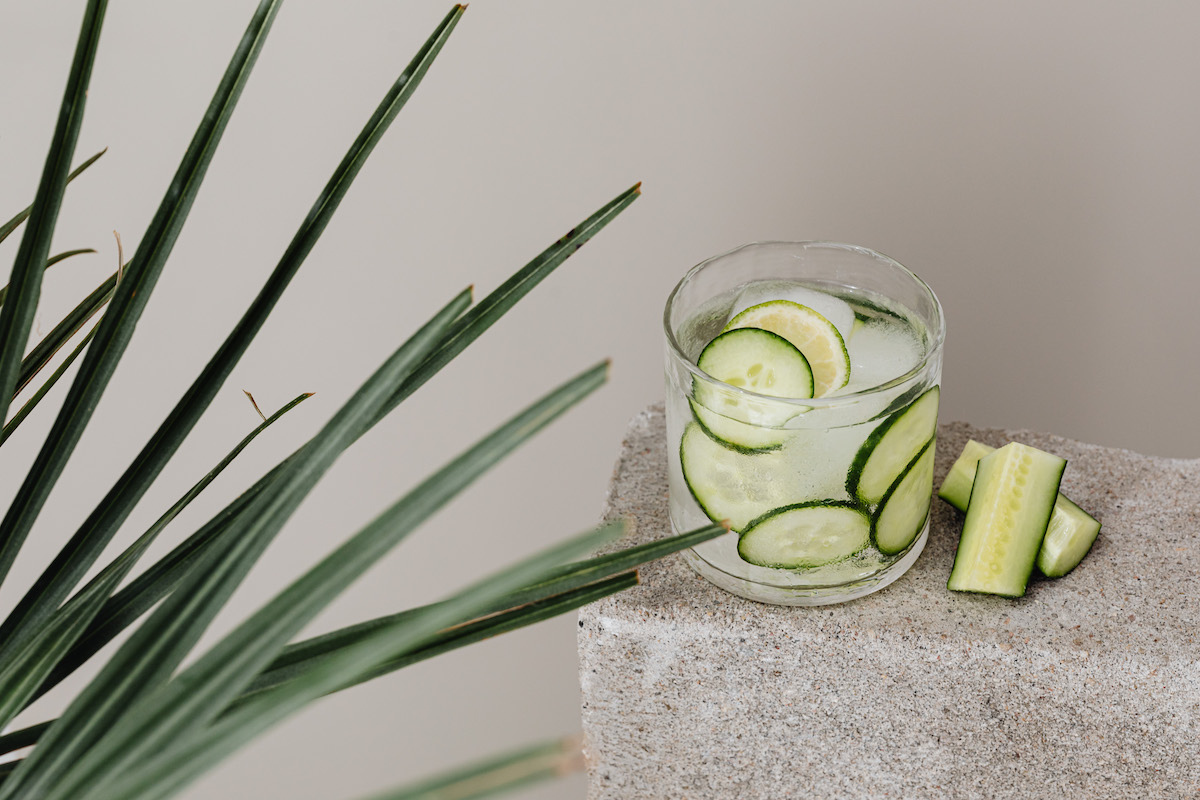
12 High water content foods and water
Our bodies are mostly made of water. As we get older our thirst signals aren’t as effective so we need to remind ourselves to replenish fluids throughout the day. In addition, with the decline of estrogen in menopause, the amount of water in our body naturally decreases which can lead to low energy levels. Look to fresh vegetables and fruits, soups, smoothies, herbal tea, and plain old water to improve brain function, make skin, hair, and nails healthier, reduce hot flashes and headaches.
For more meal planning ideas:
The Menopause Diet: 5 day plan to lose weight
Are you stumped for new high protein breakfast ideas? I got you covered. Take a look at my Protein Breakfasts ecookbook. You get 10 easy ideas for boosting energy and metabolism first thing in the morning!



